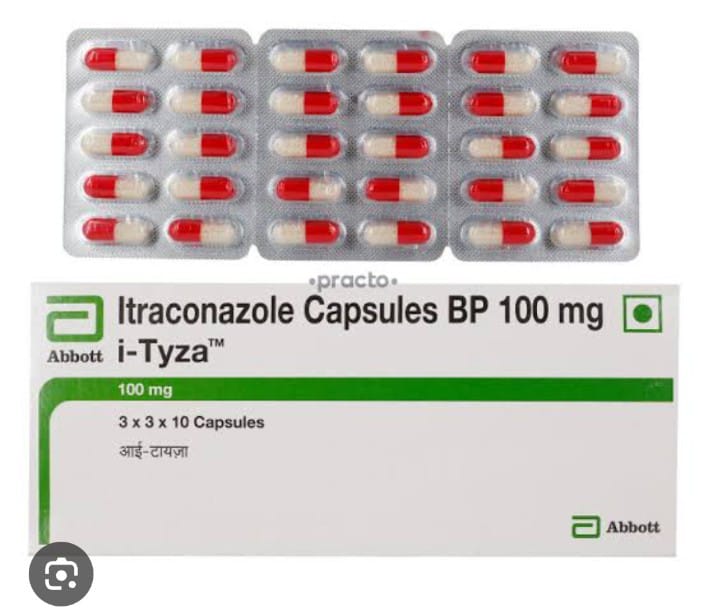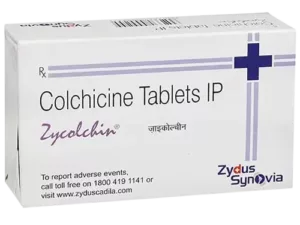Description
Itraconazole 100 mg Capsules – Broad-Spectrum Antifungal Treatment
Itraconazole 100 mg Capsules is a prescription-strength antifungal medication used to treat a variety of fungal infections affecting the skin, nails, lungs, and internal organs. It belongs to the triazole class of antifungals and works by inhibiting the growth of fungi by interfering with their cell membrane formation.
Key Benefits:
- Effective against dermatophytes, yeasts, and molds
- Used in treating toenail/fingernail fungal infections (onychomycosis)
- Treats systemic fungal infections like histoplasmosis and aspergillosis
- Helps control severe tinea corporis, cruris, and pedis
- Oral capsule formulation for convenient dosing
How to Use:
Take Itraconazole 100 mg capsule orally with a full meal to enhance absorption. Follow your doctor’s dosage instructions carefully. Avoid using antacids or proton pump inhibitors close to the dose, as they can reduce absorption.
Precautions:
- Not recommended for patients with heart failure or ventricular dysfunction
- May interact with many medications including antihistamines, statins, and anticoagulants
- Liver function should be monitored during prolonged use
- Avoid alcohol while on Itraconazole therapy
- Pregnant women should not take Itraconazole unless absolutely necessary
Storage Instructions:
Store below 30°C in a dry place, away from light and moisture. Keep out of reach of children and pets.
Frequently Asked Questions (FAQs)
1. What is Itraconazole 100 mg capsules used for?
Itraconazole is used to treat fungal infections such as toenail/fingernail infections, ringworm, tinea infections, and systemic mycoses like aspergillosis and histoplasmosis.
2. How should I take Itraconazole 100 mg capsules?
Take the capsule with food, at the same time each day. Do not crush or chew the capsule. Follow your doctor’s exact dosage schedule.
3. Can Itraconazole be taken long-term?
In chronic infections, long-term use may be required. However, liver function must be monitored regularly during extended therapy.
4. Is Itraconazole safe during pregnancy?
No. Itraconazole should not be used during pregnancy unless prescribed in life-threatening fungal infections. Women of childbearing age should use effective contraception during treatment.
5. Can Itraconazole interact with other medications?
Yes. It can interact with many drugs including statins, benzodiazepines, antihistamines, and anticoagulants. Inform your doctor of all medications you are taking.
6. What are common side effects?
Common side effects include nausea, abdominal pain, headache, and dizziness. Serious side effects like liver problems or allergic reactions should be reported immediately.
7. How long does it take to see results?
For skin infections, improvement is often seen within 1–2 weeks. Nail infections and systemic mycoses may take several weeks or months to fully resolve.






Reviews
There are no reviews yet.